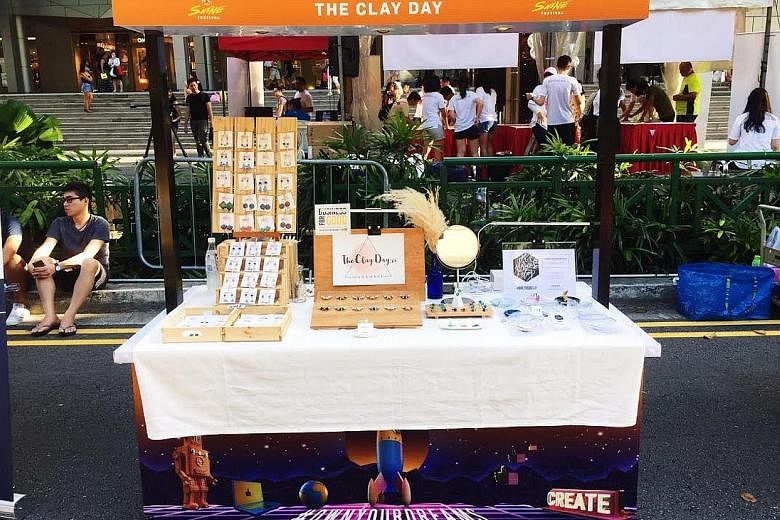When Ms Lydia Lim got married, her wedding reception featured a booth for guests to create handicrafts with ceramic products sourced from a social enterprise in Cambodia.
The booth was well received among Ms Lim's guests and the experience inspired her to start The Clay Day, a social enterprise selling handcrafted ceramic jewellery here.
The company continues to source its products from the same workshop in Cambodia, which hires local women while also providing them with education and training. The workshop works closely with The Clay Day - co-founded by Ms Lim and her husband, Mr Jair Ng, 29 - to come up with new jewellery designs and product ideas.
Ms Lim, 29, is one of a growing number of entrepreneurs here who are working to make the world a better place through business.
The number of social enterprises registered with the Singapore Centre for Social Enterprise (raiSE) has grown from 303 last year to 401 today - a 32 per cent surge.
Of the 401, about half are start- ups that have been operating as social enterprises for less than a year.
While the sector is still in its infancy, the numbers point to growing social consciousness among consumers, said raiSE chief executive Alfie Othman. "The social mission of these social enterprises is often what sets them apart from other businesses and contributes to customer acquisition and retention," he said.
His organisation offers funding, advisory services and capacity building for social enterprises to help them get their business off the ground. It committed $6.6 million in grants and investments to social enterprises between April last year and March this year.
Even as social entrepreneurship grows in popularity, however, these firms could struggle to stay viable, especially if they lack a robust business plan, said Mr Jonathan Chang, the executive director of the Lien Centre for Social Innovation at the Singapore Management University.
"I often say to aspiring social entrepreneurs that, unfortunately, a good heart alone is not enough to scale a business," he said.
"Social entrepreneurs must first and foremost focus on developing products and services that people need and want. You must have strong business acumen and an eye for commercial product and service development."
In addition, social entrepreneurs "often feel bad about making profit", he noted.
"But profit is necessary for business. It will allow the entrepreneurs to scale and attract top talent by paying competitive wages.
"Without the right talent, social enterprises might face difficulties in executing their ideas and reacting quickly to market demand, which might impede their growth."
Ms Lim said The Clay Day has just started breaking even and hopes to be profitable in the long run "so that we can expand to help more people". Most of its sales come from weekend pop-up booths, which typically yield about $400 to $600 each time.
"We have been slow to scale our business because we don't do it every day," said Ms Lim, who has a full-time job on top of running The Clay Day. "We hope to eventually hire local disadvantaged girls to work at our weekend pop-up booths and help out with our operations."



